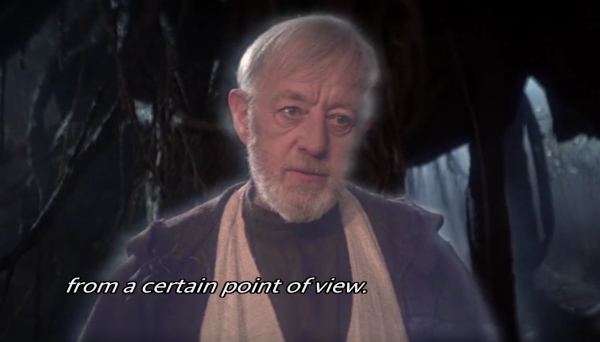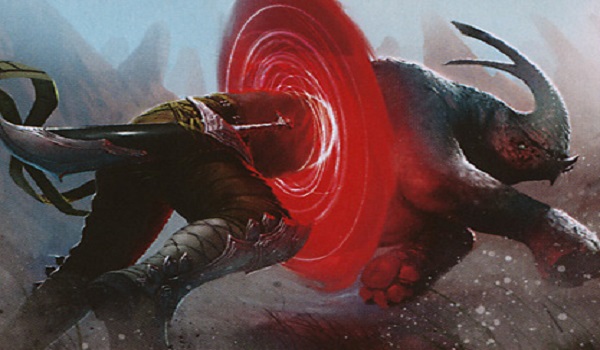Are you a Quiet Speculation member?
If not, now is a perfect time to join up! Our powerful tools, breaking-news analysis, and exclusive Discord channel will make sure you stay up to date and ahead of the curve.
My local venues have suffered a precipitous drop in attendance for both Standard and Modern events. If you still want to play competitive Magic but there are not enough players to support it, what do you do?
Commander is, of course, alive and well and both Commander and cEDH are the answers. While I cannot speak for your locale, I can say that cEDH growth is trending pretty much everywhere. SpellTable used to have a few tables during peak hours, but now ones are up constantly.
While having a competitive mindset eases the transition from 1v1 Magic to multiplayer free-for-all, it is no substitute for specific multiplayer strategies.
Everything You Know Is Wrong... Or Is It?
In a heads up competition, there is only one winner, and but one loser. Multiplayer completely obliterates that point of view, and it's important to make that distinction early.
In one example, I had a player completely and totally locked out of the game with Blood Moon. They were playing a three-color Abzan deck, and had zero basic lands in play... well, now they had Mountains! The other two players? A mono-red player who did not care, and an Izzet player who was mildly inconvenienced for a turn or two. This is the perfect illustration of the difference between multiplayer and 1v1. That player, who did not even get to play Magic for nine turns, eventually won the game!
How does that make any sense, at all? Simple: every player at that table misjudged the game state, some more than others. On my part, I had one player virtually helpless, but they did have a full grip of seven cards. Eliminating me would bring a "new" opponent into the game, and one with more resources than me. Did that change either of the other players' decisions to kill me? Not one bit! At a certain point, I was vulnerable, and got killed. Was that the right play, though? No, yes, and no.
In Multiplayer, There Is No Such Thing as "The" Right Play
Magic is a great game with infinite replayability because of imperfect information. Sure, you can analyze the board state, sometimes reveal your opponent's hand, or know what is in a popular meta deck because everyone is playing it. However, it's rare even in a heads up game to have absolute perfect knowledge of every card your opponent has access to in the next turn.
Multiplayer takes this uncertainty and multiplies it by a massive factor. Additionally, it is a skill to size up and anticipate how your opponent will react to the game state. Competitive players are always looking for tells, habits, or other pieces of information that can give them a read on their opponent. Once again, multiplayer takes that requirement and magnifies it. In all of these situations, even skilled players can be vastly wrong in terms of their outlook on board state.
The question thus becomes, how do you retrain yourself to have a better feel for the state of a multiplayer game? And the answer is three-fold.
Step 1: Reevaluate Card Strength
Insurrection has not won a stand up 1v1 tournament in 20 years. I don't say that to exaggerate; I did my best search of Top 8s. A Gruul deck called "The Claw" featured 2x in the sideboard and went 5-8 in... Pro Tour Venice 2003! Huge, splashy cards are typically not viable for competitive 1v1 decks, but in multiplayer, they are regular game winners. The math on cards like Insurrection becomes completely warped with additional players.
What about a card like Smothering Tithe, which has become omnipresent in Commander games? This card sees zero play in Legacy or Vintage. The Tithe itself doesn't do anything, and on average could provide roughly one Treasure per turn as long as your opponent does not pull anything drastic. The situation is again completely different in multiplayer. Obviously, Tithe is a lot more likely to generate three Treasure or vastly more per turn cycle. Adding insult to injury, extra card draw is found in just about all decks of all colors when it comes to multiplayer formats like Commander.
Here's an example of Tithe in action from one of my own games. One player decided to focus on me, and blew up some of my lands and mana rocks. I "responded" by maximizing my card draws and letting the other, Tithing, player generate an absolute bonkers amount of Treasure, which propelled them to the win. Here, when the table probably should have united against the Tithe player, instead the table squabbled amongst themselves, which only benefited the player who was already ahead. Simply put, there was massive table impact from that card, especially when it was deliberately abused to punish another player!
You Can Lead a Magic Player to Water...
The specific examples above show some cards that operate well outside of their normal weight class in multiplayer. Of course, every card has a different value at a full table. Swords To Plowshares, for example, is still the best removal spell in the game. The problem is that other cards like Blasphemous Act can rise to or even eclipse the power of well-established cards simply "because multiplayer."
Both removal spells are on the EDREC Top 100 for good reason. However, more than anything, in multiplayer it's the timing of your removal that matters. Sure, in a duel, you wipe the board when it helps you and hurts your opponent. The math is simple, the timing trivial.
ut in multiplayer? You could end up helping other players more than yourself. Because of hidden information, you may end up unwittingly enabling someone's Living Death or Cosmic Intervention. You might remove something that is hurting you, but also the only thing keeping another player from outright winning the game. How do you manage the game when the value of everything is different than you are used to? Human capital, of course!
Step 2: Play the Players
Your best bet is, in a word, diplomacy. Get other players involved in your decisions. This gives you crucial information like what other players are planning, what they have in their decks, and what they have in hand.

A huge play that 15-for-1s the table but does not win the game is going to draw responses from everyone against you. So is that the correct play? Unlikely. However, if you can get a player or two to agree with your point of view that a wipe was necessary, you don't make new enemies. This is playing the players versus playing the cards.
Step 3: Expect the Unexpected
In short, Murphy's Law. Multiplayer games can turn sideways quickly. The solution? Backup plans and redundancy. In particular, this shows why degenerate decks have such a hard time winning more than once: because they lack such safeguards. Once anyone understands the single play a degenerate deck can make, disrupting it proves fairly easy. Building in a secondary win condition, or adding recursion and other flexible solutions, helps to avoid this trap.
While a lot of what I am saying is common in ordinary Commander games, it applies to other multi-player formats and game types as well. And let's not forget the power of theft! Sometimes the best way to solve a situation you did not anticipate is to use someone else's tools.
Consistently Improving
This is where we talk about win percentage. Theoretically, your odds of winning a 1v1 should be about 50%, and your four player FFA about 25%. Statistically speaking, games are either a W or an L. However, I find that in multiplayer you can learn a lot more, even during a loss.
This is outside of playing simply for the experience. Getting a loss but also valuable insight into how other players think and play can be invaluable to increasing your long term wins. Turns tend to be more involved and interaction more nuanced, so the opportunities for learning are much greater. Playing multiplayer Magic is a great way to get better at playing Magic period!
Do you play multiplayer Magic? What about outside of specifically Commander? Let me know in the comments. Until then, good luck... to all of you at the table!





